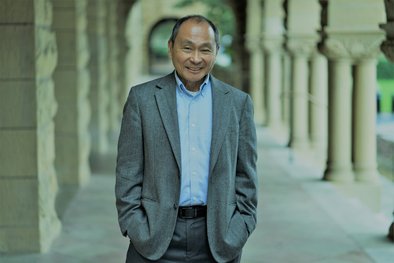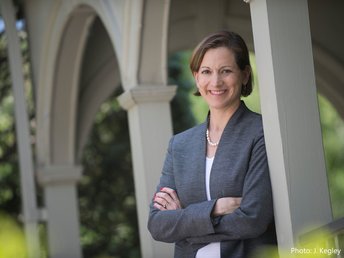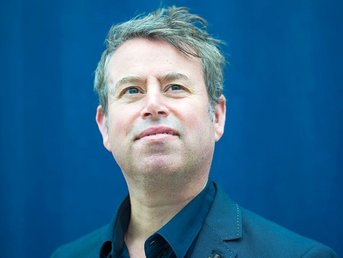Keynote speakers
Political scientist Francis Fukuyama

On Friday, Francis Fukuyama will give a keynote lecture on whether the monopoly of tech giants like Facebook, Google, and Twitter is destroying democratic discourse—and what can be done.
Big Tech and the Threat to Democracy
Contrary to the hopes of many at the beginning of the online era, the internet has created new challenges to democracy worldwide. Instead of being a decentralized marketplace of ideas, political speech has come to be controlled by three large American corporations, Facebook, Google, and Twitter, that exercise enormous power. Since 2016 there has been mounting evidence that the spread of global populism, polarization, and conspiracy theories has been fueled by the dependence of entire populations on these platforms for communications. The toxic proliferation of fake news and conspiracy theories has many roots deep in society, but technology has facilitated their spread through the platforms’ ability to amplify or to silence particular political voices. At the moment, we are depending on the platforms themselves to curate this content, but they have neither the capacity nor the legitimacy to do this. We therefore need to turn to other solutions if we are to avoid this problem.
Journalist Anne Applebaum

On Thursday, Anne Applebaum willl explore the political threat of disinformation and algorithmic distortion, drawing on decades of experience studying how states transition into and out of democracy.
Democracy and Disinformation
Democracy arose in a world where civilized debate was not just possible, but a valued part of public life. Whether it took place in parliament, at a town hall or on television, rational conversation was the lifeblood of politics. This is no longer true. Nowadays, conversation in all of our democracies is governed by algorithms that are designed to capture attention, suck up personal data and sell advertising. The voices of the angriest, most emotional, most divisive and often most duplicitous participants are amplified. Reasonable, rational and nuanced voices can be much harder to hear. Conspiracy theorists are led to other conspiracy theorists; radicalization spreads quickly. The inhabitants of modern democracies feel powerless because they are. What can we do about this fundamental change? How can we get control over the internet before it destroys us?
Psychologist Mark van Vugt

On Saturday, Mark van Vugt will examine the future of work, arguing that the digital revolution has created new imbalances but may also lead to more cooperative relations in politics and the workplace.
Leadership and Power in the Digital Era: Lessons from our Evolutionary Past
An evolutionary perspective offers many new insights into major barriers to effective leader-follower relations in the digital world. These include mismatches between modern and ancestral environments (e.g., leaders and followers lack intimate knowledge about each other’s motives, personality and values); (b) evolved cognitive biases affecting collective decision-making (e.g., followers mistake dominance for competence when choosing leaders) and (c) innate psychological mechanisms designed to dominate other individuals (e.g., followers lack levelling mechanisms to curtail the power of leaders). As humans moved from small-scale societies to large, complex organizations the opportunities for exploitative and destructive leadership increased. The digital revolution creates novel mismatches but, if handled well, has the potential to result in more cooperative leader-follower relationships in politics and the workplace.
Videointerview with political scientist Francis Fukuyama and journalist Anne Applebaum (December 2020)
In December 2020, Professor Mads Rosendahl Thomsen, organizer of the conference MatchPoints 2021, spoke with renowned political scientist Francis Fukuyama and award-winning journalist Anne Applebaum about digitalization, Big Tech and democracy in connection with the US election, which at the time was still in a very uncertain state. You can meet the two keynote speakers and many others in Aarhus on May 27–29, as Aarhus University gathers leading researchers, politicians, business leaders and journalists from around the world to discuss democracy in the digital age at this year’s MatchPoints conference.